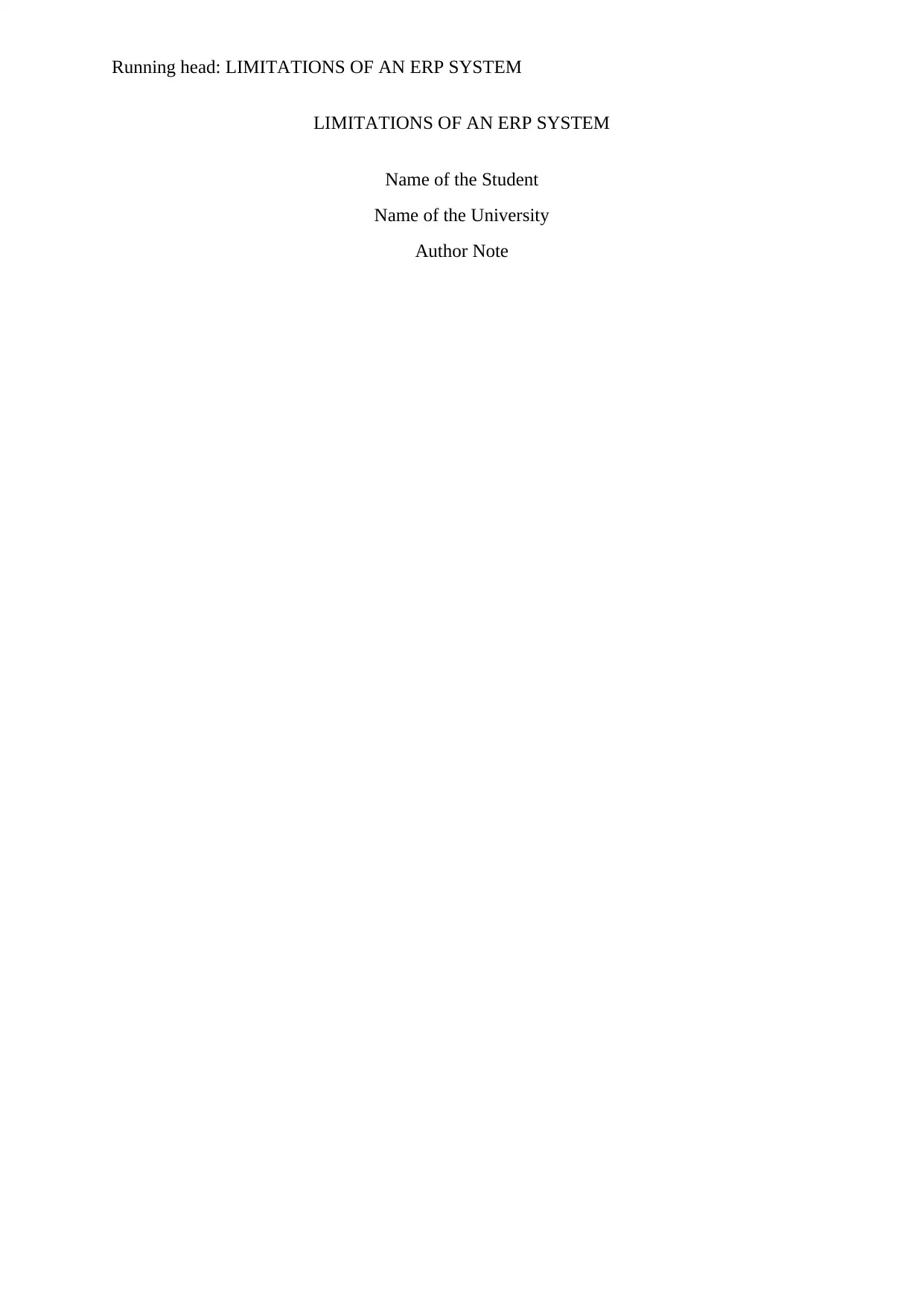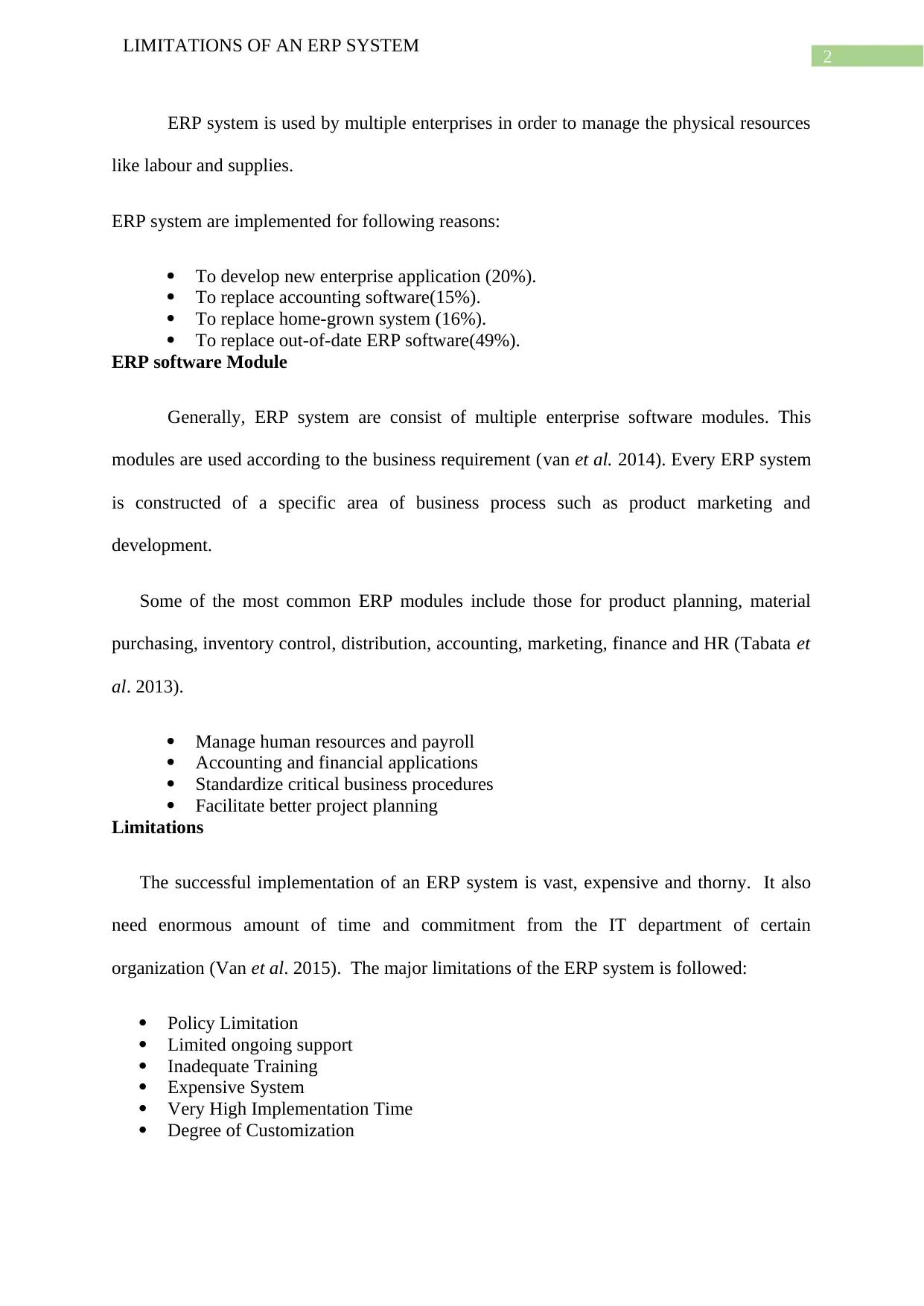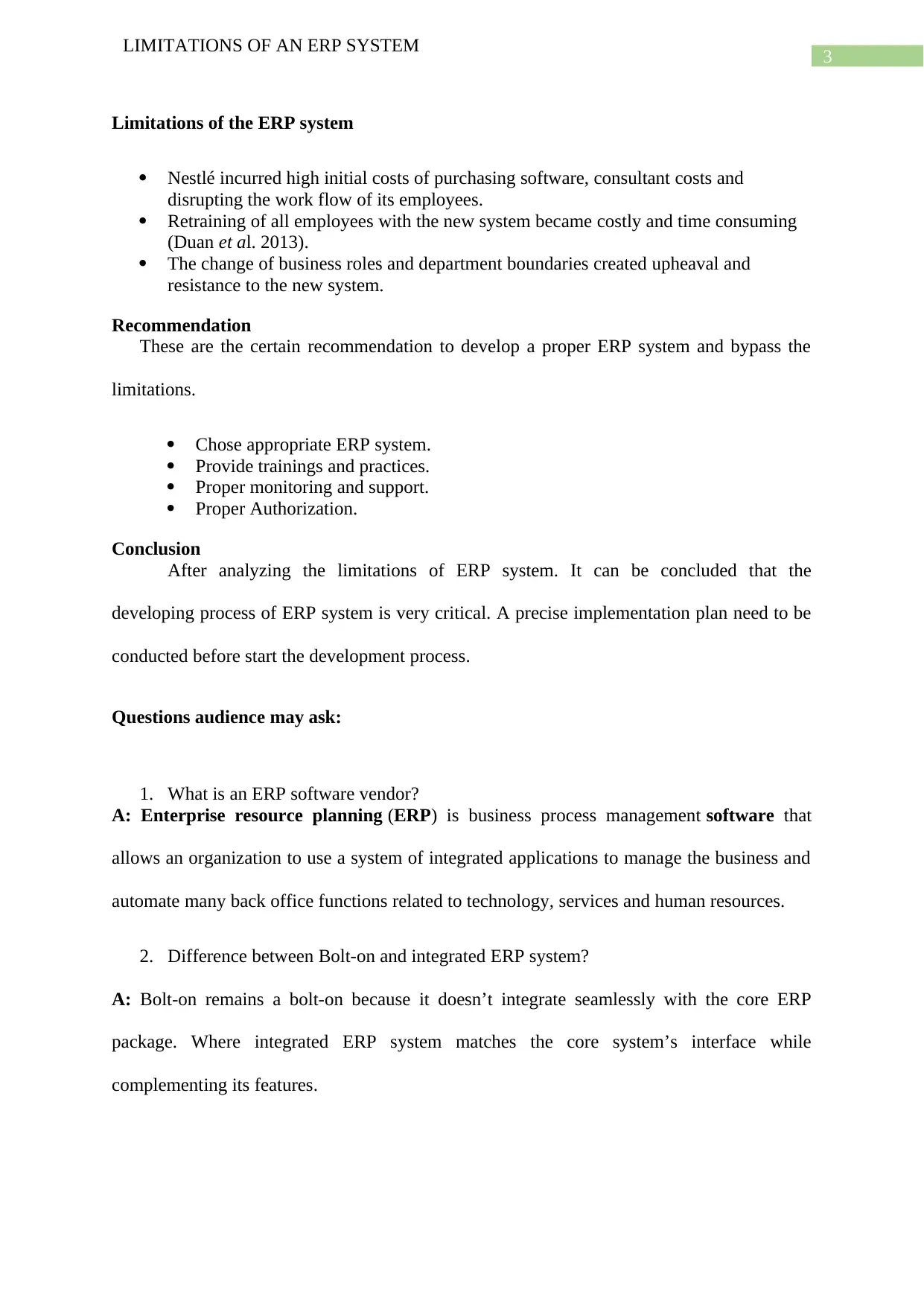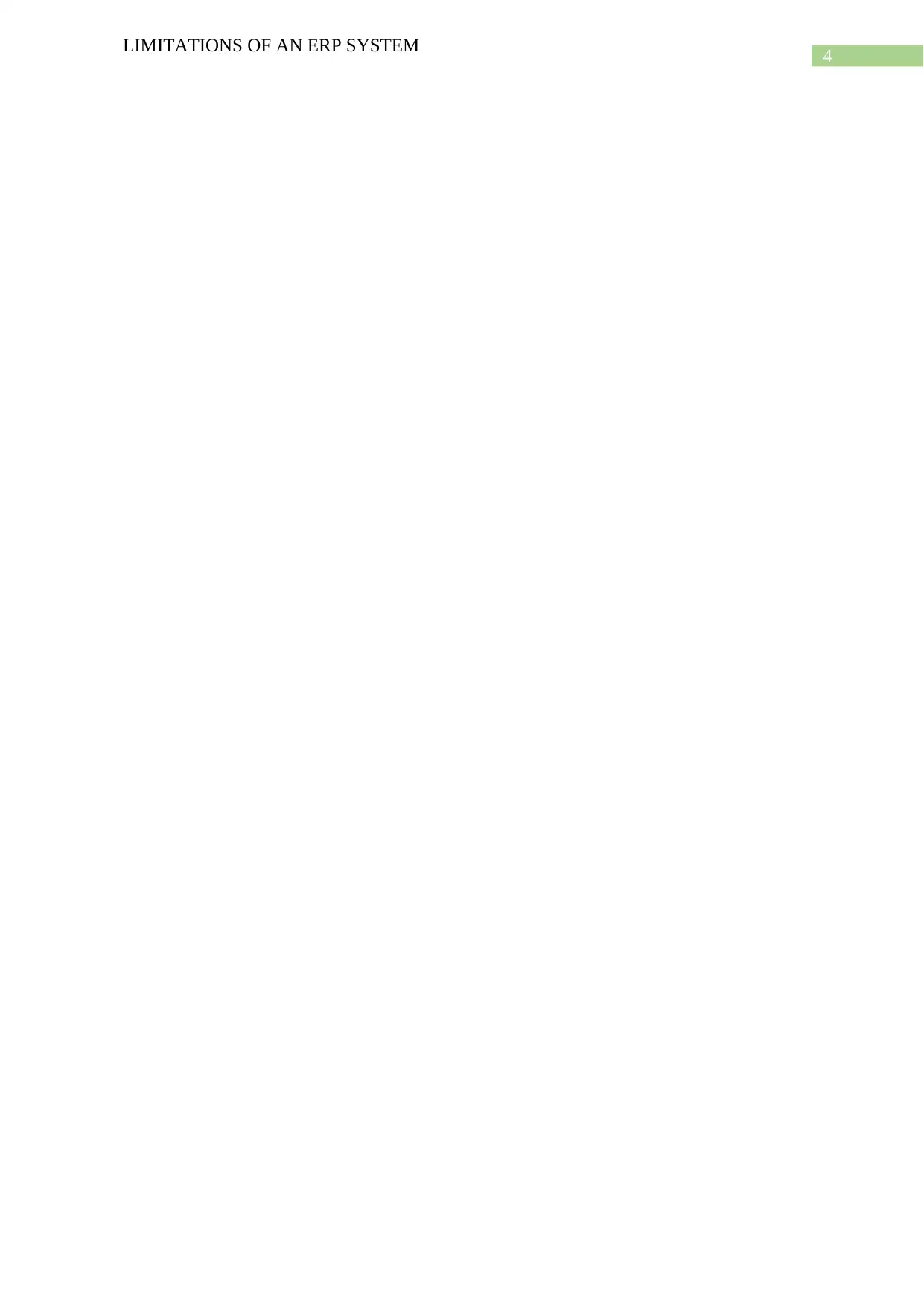COIS12073 Presentation: Understanding the Limitations of ERP
VerifiedAdded on 2023/06/07
|4
|534
|225
Presentation
AI Summary
This presentation delves into the limitations of Enterprise Resource Planning (ERP) systems, which are widely used by enterprises to manage physical resources. It highlights that ERP implementations are often driven by the need to develop new applications, replace outdated software, or replace homegrown systems. The presentation outlines common ERP modules, including those for product planning, purchasing, inventory control, accounting, marketing, finance, and HR. It emphasizes that successful ERP implementation can be vast, expensive, and time-consuming, requiring significant commitment from an organization's IT department. The key limitations discussed include policy limitations, limited ongoing support, inadequate training, high costs, long implementation times, and the degree of customization required. Specific examples, such as Nestlé's experience, illustrate the high initial costs and challenges associated with retraining employees and managing resistance to change. The presentation concludes with recommendations for developing a proper ERP system and bypassing these limitations, including choosing appropriate systems, providing adequate training, ensuring proper monitoring and support, and implementing proper authorization protocols. It finishes with frequently asked questions (FAQs) related to ERP software vendors and system types.
1 out of 4










![[object Object]](/_next/static/media/star-bottom.7253800d.svg)